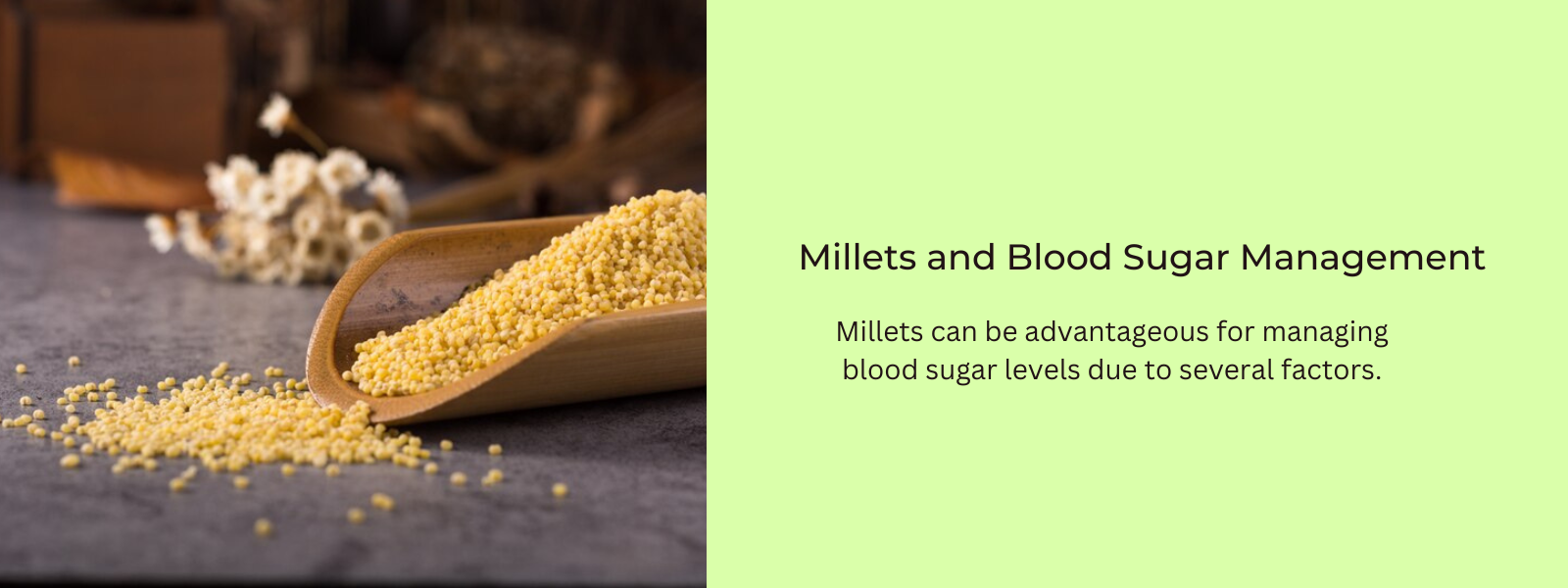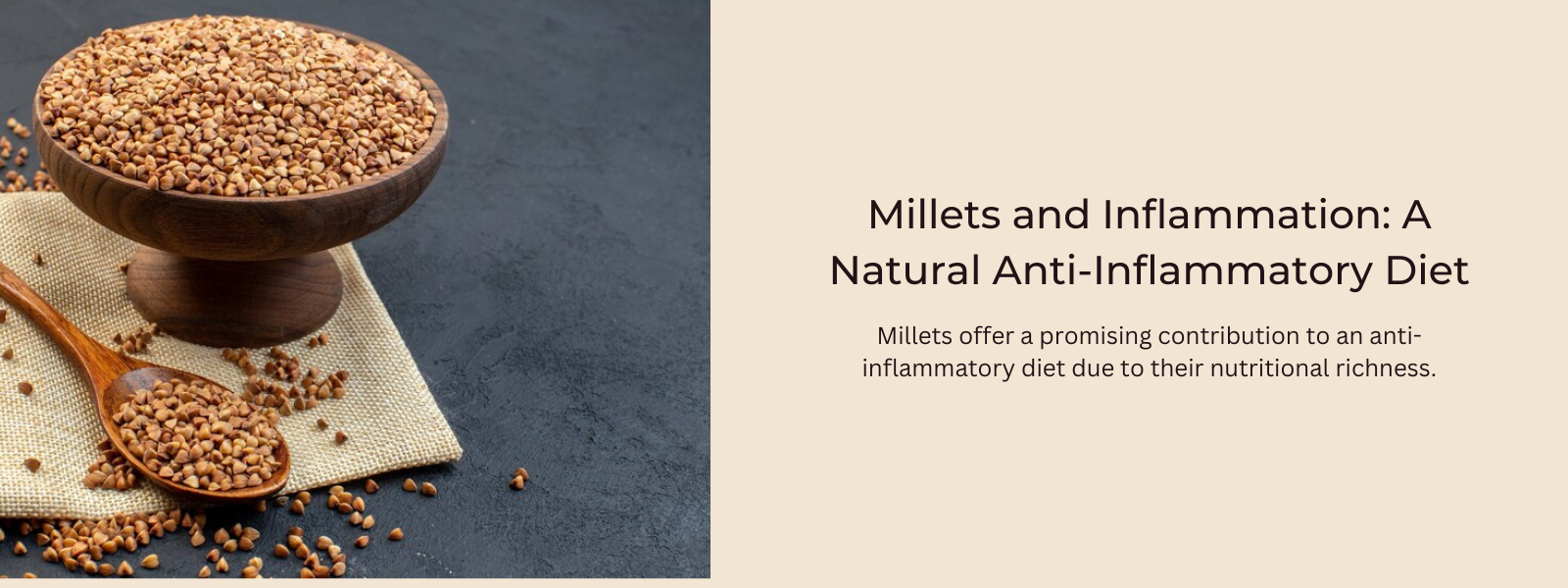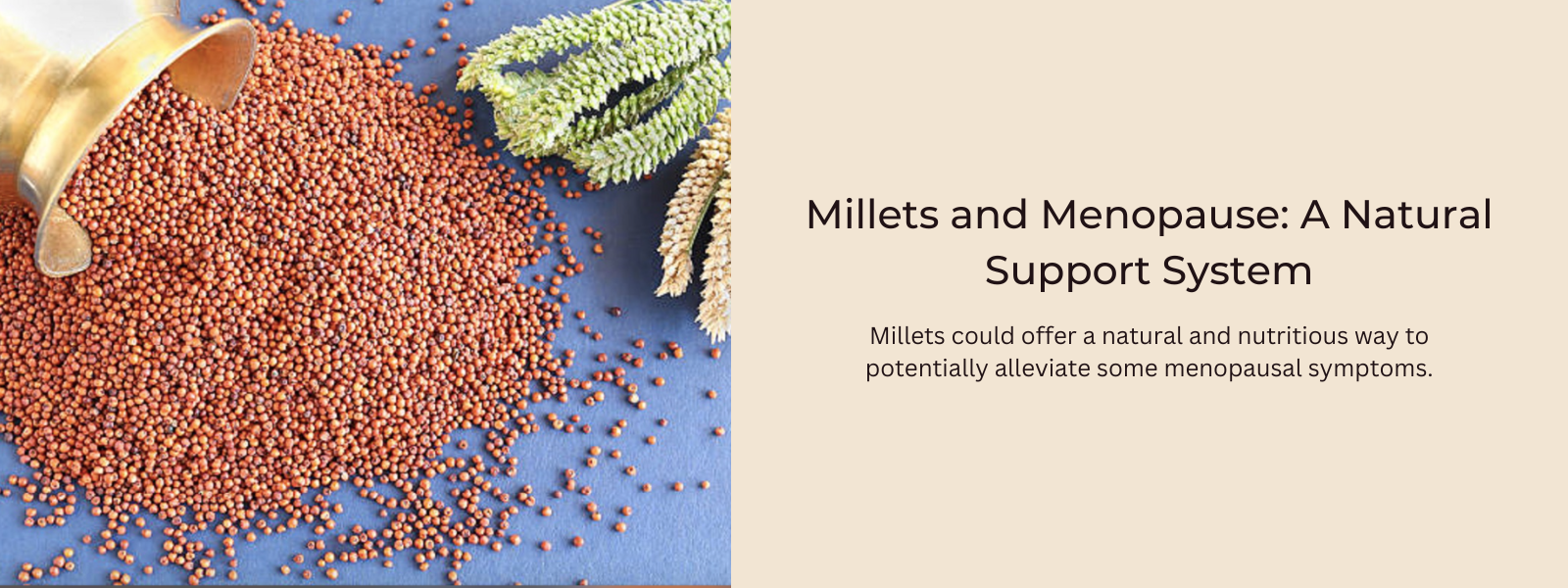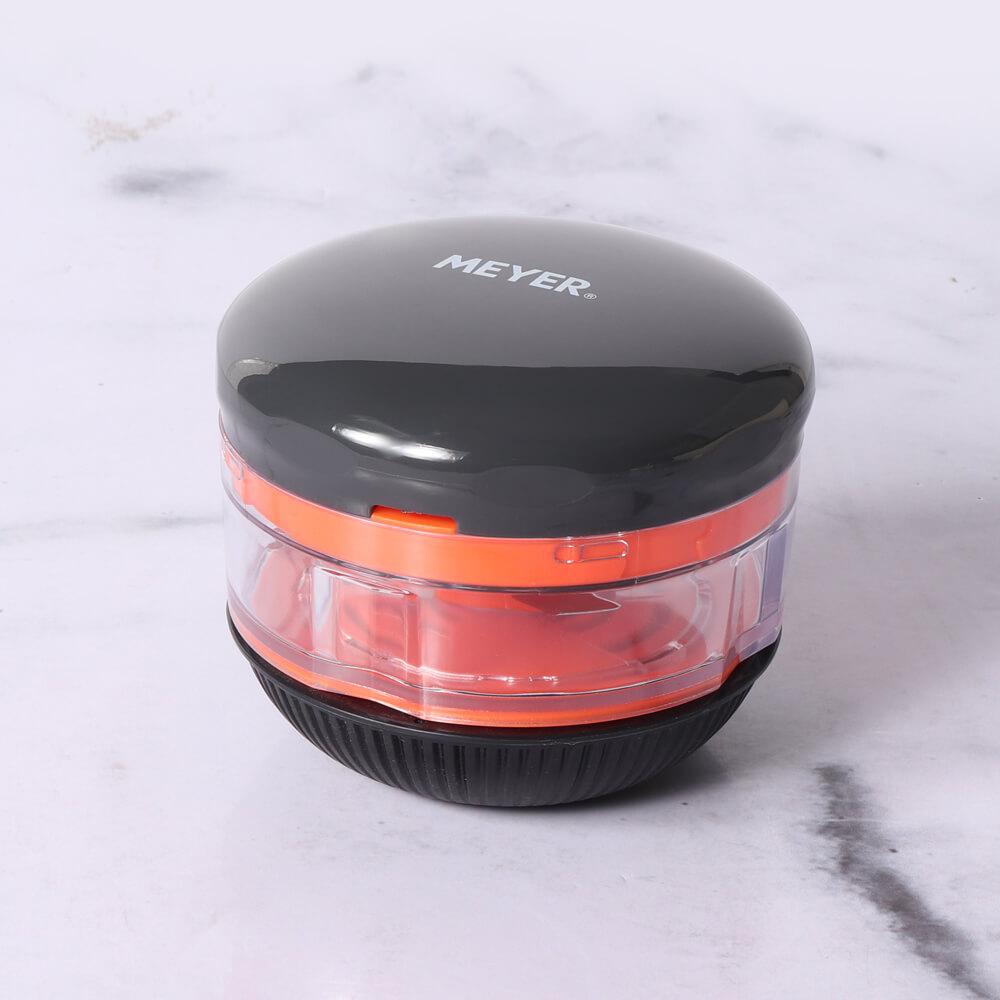A nutritional breakdown of popular millets—pearl millet (bajra), finger millet (ragi), foxtail millet, sorghum (jowar), and proso millet—reveals their rich nutrient profiles and significant health benefits. Pearl millet is high in protein, fiber, iron, and magnesium, supporting energy levels, bone health, and heart function. Finger millet stands out for its exceptionally high calcium content, promoting bone strength and aiding in diabetes management due to its low glycemic index. Foxtail millet, rich in complex carbohydrates and fiber, aids in weight management and digestive health, while sorghum offers antioxidants and B-vitamins, enhancing heart health and providing a sustained energy boost. Proso millet, packed with B-vitamins and minerals, supports metabolic functions and digestive regularity. These gluten-free grains offer a versatile and nutritious addition to any diet, contributing to overall health and well-being.
Table of Contents
Pearl Millet (Bajra):
- Nutrients: Pearl millet is rich in protein (about 10-12%), which is essential for muscle repair and growth. It also provides significant amounts of dietary fiber, iron, magnesium, phosphorus, and potassium.
- Health Benefits:
- Energy Boost: The complex carbohydrates in pearl millet provide sustained energy, making it beneficial for active individuals.
- Bone Health: High in magnesium and phosphorus, pearl millet supports bone structure and strength.
- Heart Health: Its potassium content helps regulate blood pressure, reducing the risk of hypertension and cardiovascular disease.
Finger Millet (Ragi):
- Nutrients: Finger millet is notably high in calcium (about 344 mg per 100 grams), making it one of the richest plant sources of this mineral. It also contains significant amounts of iron, protein (about 7-8%), fiber, and essential amino acids like methionine and lysine.
- Health Benefits:
- Bone Strength: The high calcium content supports bone health and prevents osteoporosis.
- Diabetes Management: Ragi has a low glycemic index, helping to manage blood sugar levels and insulin response.
- Digestive Health: Its fiber content promotes digestive regularity and prevents constipation.
Foxtail Millet:
- Nutrients: Foxtail millet is rich in complex carbohydrates, dietary fiber, protein (about 12%), and minerals like iron, calcium, magnesium, and phosphorus.
- Health Benefits:
- Weight Management: High fiber content promotes satiety and helps in weight management.
- Heart Health: Low glycemic index and high potassium content support heart health by regulating blood pressure.
- Digestive Health: Dietary fiber supports digestive function and prevents digestive disorders.
Sorghum (Jowar):
- Nutrients: Sorghum is gluten-free and packed with antioxidants, vitamins (B-complex), minerals (iron, magnesium, phosphorus), and dietary fiber.
- Health Benefits:
- Antioxidant Power: High antioxidant content protects cells from oxidative stress and inflammation.
- Heart Health: Fiber and phytochemicals lower cholesterol levels and reduce the risk of cardiovascular diseases.
- Energy Boost: Complex carbohydrates provide sustained energy without spiking blood sugar levels.
Proso Millet:
- Nutrients: Proso millet is rich in B-vitamins (niacin, thiamine), minerals (phosphorus, manganese), protein, and dietary fiber.
- Health Benefits:
- Metabolic Support: B-vitamins support energy metabolism and nervous system function.
- Digestive Health: High fiber content aids digestion and prevents constipation.
- Nutrient Density: Packed with essential nutrients, proso millet contributes to overall health and well-being.
Conclusion:
Millets, with their diverse range of nutrients and health benefits, are an excellent addition to any diet. Their high protein, fiber, vitamins, and minerals support various aspects of health, including bone strength, digestive health, blood sugar management, and overall vitality. As gluten-free grains, they provide a valuable alternative for those with gluten sensitivities or celiac disease. Incorporating millets into daily meals not only connects us to ancient culinary traditions but also fosters modern health and wellness, making them a truly timeless superfood.











Leave a comment